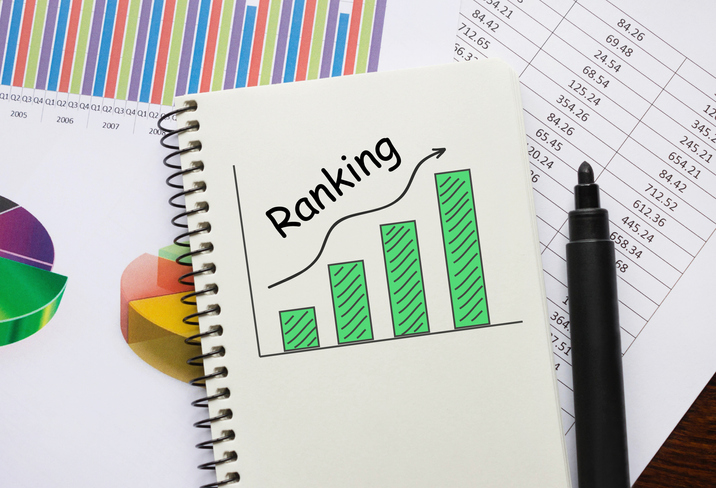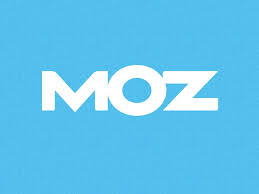
Some local SEO experts are really focused on increasing their clients’ Domain Authority. And others don’t really worry about it. So, is Domain Authority still relevant?
Domain Authority is still a very important indicator of the strength of a domain. In local SEO, the higher the Domain Authority, the easier it is for a website to rank against its competition. It may not be everything, but it is still a large part of search engine algorithms.
In this article, I will first talk briefly about what Domain Authority is, then we will go into more detail about why it is still relevant. You might also want to read my article “How To Create An Authoritative Digital Footprint!“
What Is Domain Authority?
Understanding what domain authority is will help you better know what you need to do to build your website’s authority. So, let’s get into it!
Google has a ranking factor called Page Rank, a major part of its ranking algorithm. Google used to publish this information until 2013. When it did, it was a scale of 0 to 10, with 10 being the best, 0 being the worst, and 4 to 5 considered above average.
According to Google Page Rank is an algorithm that looks at backlinks pointing at a website to determine roughly how important that website is. The term Page Rank came from the name of its developer, Larry Page.
When Google stopped publishing its Page Rank measurements, the company Moz.com came out with two algorithms mimicking the findings of Page Rank, one called “Domain Authority (DA)” and the other called “Page Authority (PA)” The first obviously focuses on measuring the importance and rankability of the domain, and the second on specific pages.
Both of these algorithms measure 0 to 100 rather than 0 to 10 like Page Rank did. And over 40 to 50 is considered an above-average score. Moz has free extensions for most main browsers that show you the Page and Domain Authority for every website you visit.
What Does Moz’s Domain Authority Measure?

Moz has a tool called its “Link Explorer,” which SEO companies pay for and use to search the backlinks of their own websites as well as those of their competitors. So Moz’s Link Explorer is constantly scanning websites and how well they rank in Google.
Moz uses the data it gathers from looking at model websites and how well they rank compared to other websites to determine its Domain Authority measurement.
It analyzes (similar to Google’s Page Rank) the various backlink profiles of all of the various websites it crawls to see how this affects where the search engines show each website in searches for their various keywords.
Moz says its Domain and Page Authority algorithms utilize machine learning capabilities to calculate its scores. Its algorithm calculation uses this machine learning model to predict and find what it calls a “best fit” algorithm that compares its link data with rankings across thousands of actual search results that it uses as its standards to scale against.
The bottom line is they are really good at estimating how websites’ various backlink profiles will help them rank in Google’s search results. They mimic Google’s Page Rank really well, in other words.
Why Is Domain Authority Still Relevant?

Domain Authority is still relevant because Google still uses its Page Rank algorithm as a way to determine the importance of articles and domains. Moz’s Domain Authority measurement is the closest thing we have to being able to measure Google’s Page Rank.
So, as long as Google uses the factors of their Page Rank in determining who they will show in searches, and as long as Domain Authority does a good job of mimicking Page Rank, Domain Authority will be relevant.
And since most other search engines model their algorithms after Google or try to outdo Google, Domain Authority is a good indicator of how a site will rank in other search engines. Either way, 90 percent of searches are done on Google, so determining the probability of how a domain will rank on Google is the most important.
How Is Domain Authority Most Relevant In Local SEO?
Okay, for us on this website, this is where the rubber meets the road. This is what we care most about, lol.
Facebook has a 96 DA score, and Wikipedia has a 93 DA Score. So unless you think you can get your local business website to compare in size and backlink structure to those sites, your local business website will never have those high scores.
So what matters to us is what are the DA and PA scores of the competitors that outrank us; that is who we are trying to beat. If you get a local business website to have a DA score of above 30, you are doing pretty dang good. A 40-plus DA score, and you are kicking butt and taking names.
So, I recommend adding the Moz free extension to your browser and checking out all your competitors’ DA scores. Then, either use Moz’s Link Explorer tool or a service like Ahrefs or Semrush to check their backlinks and plan how to outdo them.
Local SEO Relevance Vs. Domain Authority
Just a quick reminder for everyone that relevance trumps authority every day of the week. What do I mean by that? A contextual link from a local website or a website in your industry that has an 18 DA score will most likely do more to build your authority and help you rank better in maps than a contextual link from a nonrelevant website with a 40 DA score.
We are looking for authority within our city and industry in local SEO more than we are looking for links from unrelated sites with authority from other topics. Relevance is king.
Final Thoughts
Okay, I would like to emphasize a few final thoughts on Domain Authority. It is very, very powerful. relevant Domain Authority is probably the most important part of local SEO or any SEO for that matter.
I highly recommend you read all the articles we have on this website on backlinks or Domain Authority and do your best to get your local business the highest relevant Domain Authority you can. The better you do that, the better you rank in Google Maps and regular local organic searches.
